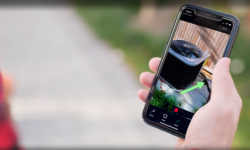ESA and TMA Dispute Google Statement: ‘Security Systems Often Use Microphones’
The industry associations rebuke the validity of Google’s published statements concerning the use of microphones in security devices.

Google said there are no microphones in the Nest Learning Thermostat product line; however, there is one in all of its home security devices, including the Nest Cam camera and Nest Hello doorbell product lines.
VIENNA, Va. — The Monitoring Association (TMA) and the Electronic Security Association (ESA) have issued a joint release to rebuke statements made by Google in the wake of recent privacy concerns surrounding the use of on-board microphones in the Nest Secure alarm system.
Recent media reports, including this one by Business Insider, have highlighted the undisclosed, on-board microphone discovered in Google’s Nest Guard security device.
TMA and ESA call into question the validity of Google’s published statements concerning the use of microphones in security devices. According to the associations, statements such as, “security systems often include microphones to provide features that rely on sound sensing,” misrepresent the vast majority of today’s residential security systems installed throughout the United States.
Since audio recording includes privacy and legal complexities, it is not extremely common in residential installations, the joint release states. Installing security contractors consult with customers and ensure all federal and state laws are abided by, the release continues.
“Adding audio surveillance can certainly make for a more robust system,” says ESA President Chris Mosley. “We’re seeing exciting advancements in the audio surveillance category, such as acoustic sensors and microphones that can help us detect gunfire or when voices become elevated that could indicate potential violence. However, sweeping statements to infer that residential systems commonly have this feature are simply not accurate.”
Louroe Electronics, an ESA Member company and 40-year-old manufacturer of audio-based technologies concurs with this analysis. “Sound-based technology in security systems is common in law enforcement, institutional, and smart city installations. However, the use of microphones for surveillance in residences is extremely rare on account of heightened expectations of privacy,” says Louroe CEO Richard Brent.
“Security systems are now an important part of the customer home experience in that we can integrate with audio assistance,” says TMA President Ivan Spector. “However professionally installed and monitored security systems are not designed to record data and conversations unbeknownst to our customers.”
According to both associations, adding microphones and audio capabilities to security systems adds another level of precaution that must be taken to install the system in a way that protects the privacy of the consumer.
Professionally installed systems have the backing of technology experts who know the full capability of the system and its components and can appropriately safeguard these systems, so as not to compromise privacy, the release states.
If you enjoyed this article and want to receive more valuable industry content like this, click here to sign up for our FREE digital newsletters!

Security Is Our Business, Too
For professionals who recommend, buy and install all types of electronic security equipment, a free subscription to Commercial Integrator + Security Sales & Integration is like having a consultant on call. You’ll find an ideal balance of technology and business coverage, with installation tips and techniques for products and updates on how to add to your bottom line.
A FREE subscription to the top resource for security and integration industry will prove to be invaluable.














Although no one should take Google’s comments serious (as we know the spin) I’m sure a few will. This is certainly a great move on the part of ESA and TMA.
Kudos!
Al Colombo
http://www.SecurityeNews.com